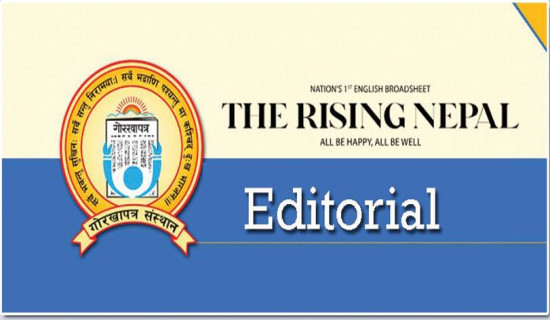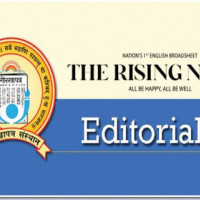- Wednesday, 28 January 2026
Vital Organ Transplant
Organ donation is perhaps the most precious service to a person who is in the urgent need of a transplant. It provides a second chance at life to an individual whose vital organs have stopped functioning. Donating organs saves and transforms the life of the organ receiver. There are hundreds of thousands of people living with the failure of organs such as kidney and liver. So wishing to donate a healthy organ or tissue alive or after death is highly appreciative deed. It is a marvel of medical science that has made the impossible possible. So the faint hopes of those needing the human organs should be rekindled. And it is the responsibility of the society to fulfil their aspirations of living a new life.
However, there lies many social and cultural barriers with regard to the organ donation. In fact, this is not an anti-religious act so the people should be encouraged to donate their organs. This requires motivating the people to donate their organs to the needy. In addition, it is equally imperative to raise awareness about the importance of organ donation. Despite the huge demand for organs, there has been a meagre supply of them due largely to the hesitation of the people in donating their organs as they have not full trust in the efficiency of medical practitioners. The country has not still sufficient number of doctors trained in transplanting human organs. In Nepal, thousands of people die in road accidents annually. Many of such deceased can be brain dead organ donors. The immediate relatives of the victims should be persuaded for this pious task.
Another major constraint is the insufficient medical facilities to perform an organ transplantation. In 2012, Nepal government established Human Organ Transplant Centre, which was later renamed Shahid Dharmabhakta National Transplant Centre in Bhaktpur with a view to strengthening and expanding organ transplantation services across the country. It seeks to take various measures to boost the rate of living and brain-dead organ donation and conduct research to understand the state of kidney and other organ failure in Nepal.
On Tuesday, World Organ Donation Day (August 13) was marked with the view of highlighting the significance of the organ donation. On the occasion, Minister for Health and Population Pradeep Paudel announced the establishment of human organ transplant sub-centres across all seven provinces and Koshi Province will immediately start works in this regard. The motive behind setting up the new organ transplantation sub-centres is that the Bhaktapur-based Dharmabhakta National Transplant Centre is unable to cater services to the rising number of patients with the organ dysfunction. The centralisation of facilities will deprive many others of the advanced medical facilities.
However, there is a dearth of sufficient budget, human resources and infrastructures, which might delay implementing the announcement of the new minister, who has recently rolled out his action plan to revamp the entire health system. And operating organ transplant sub-centres in seven provinces is the part of his health sector's reform roadmap. As per the news report, the government aims to expand insurance coverage to at least 500,000 individuals, integrate health insurance with other social security programmes and standardise treatment costs across both insured and uninsured patients. To increase funds, it is mulling to levy a ‘Sugar Tax’ on sugary foods, formulate the Integrated Health Services Act, and amend the Health Workers and Health Institutions Security Act to better protect medical professionals.









-original-thumb.jpg)







